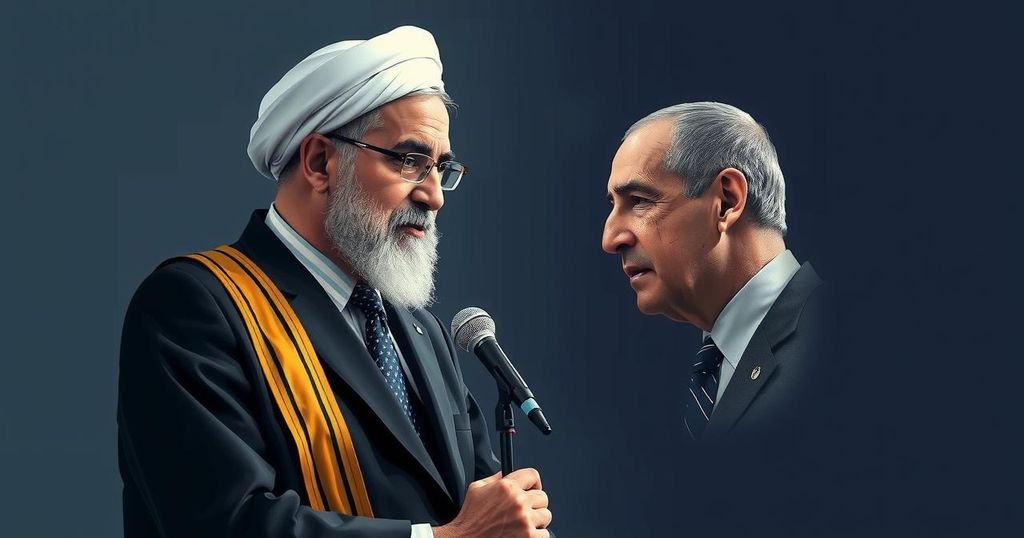President Biden stated there exists an opportunity to ease hostilities between Israel and Iran during a recent press conference. However, he acknowledged that achieving a ceasefire in Gaza remains unlikely because of heightened tensions following the recent assassination of Hamas leader Yahya Sinwar. The U.S. continues to pledge military support to Israel while navigating the complex political landscape of the Middle East.
United States President Joe Biden recently expressed cautious optimism regarding the potential to mitigate hostilities between Israel and Iran. During a press conference in Berlin with the leaders of Germany, France, and the United Kingdom, he conveyed the belief that there exists an opportunity to address the ongoing tensions. Biden asserted, “There’s an opportunity in my view – and my colleagues agree – that we can probably deal with Israel and Iran in a way that ends the conflict for a while. In other words, it stops the back and forth.” However, the President indicated that achieving a ceasefire in Gaza would be considerably more challenging. He made these remarks following the assassination of Hamas leader Yahya Sinwar, which he described as an “opportunity” to seek resolution in the ongoing conflict in Gaza. Although the United States has pledged continued military support to Israel, Biden has acknowledged the pressing need for an outcome regarding the future of the region. Biden’s statements reflect a potential shift in the U.S. approach to the Middle East conflict, especially after the State Department had previously suggested a more passive stance regarding ceasefires between Hezbollah and Israel, citing Hezbollah’s weakened state following recent leadership losses. Biden remained circumspect when asked about details regarding Israel’s military responses to Iranian provocations, stating, “Yes and yes… No and no” when pressed for clarification. The backdrop of these discussions includes a significant escalation in violent confrontations, with Iran having launched missile strikes against Israel amidst retaliatory actions following high-profile assassinations attributed to Israel. This situation has the potential to complicate U.S. strategic interests, especially given the upcoming electoral cycle and the implications of rising oil prices resulting from military action against Iranian resources. Furthermore, tensions are not confined to Gaza, as the conflict has also extended into Lebanon, where Israeli military actions have faced stiff resistance from Hezbollah, resulting in substantial casualties on both sides. Amid these complex dynamics, Biden’s administration faces pressing challenges to balance support for an ally while seeking a path to stability in an increasingly volatile region.
The ongoing conflict between Iran and Israel has been marked by a series of hostilities, including missile strikes and retaliatory actions, exacerbated by significant political upheaval in the region. President Biden’s administration has been navigating the complexities of U.S. relations with both nations, particularly as violence escalates and implications for regional stability grow more dire. The assassination of key militant leaders has triggered cycles of retaliation, prompting increased military responses from both sides. Concurrently, Biden’s supportive stance towards Israel amidst international criticism regarding its military actions in Gaza further complicates the U.S. position in seeking diplomacy in the area. The historical context of these tensions forms the basis of ongoing discussions within international political frameworks.
In conclusion, President Biden’s remarks underline a growing recognition of the volatile nature of U.S. involvement in Middle Eastern conflicts, particularly regarding the dynamics between Iran and Israel. While he expressed a tenuous hope for de-escalation, the path to a ceasefire in Gaza appears fraught with difficulties. The ramifications of ongoing military actions and the need for a comprehensive response are critical factors that will shape future U.S. policy and international relations in the region.
Original Source: www.aljazeera.com






